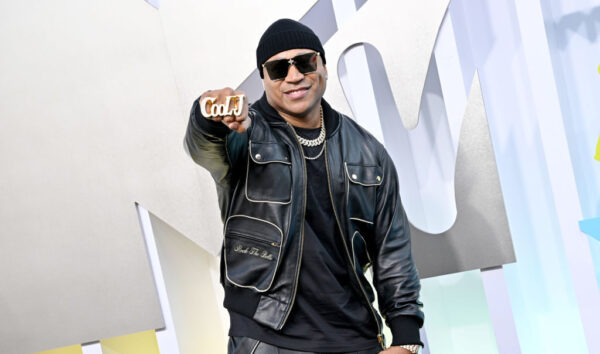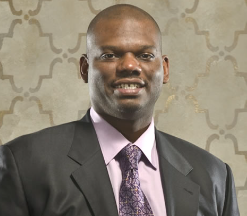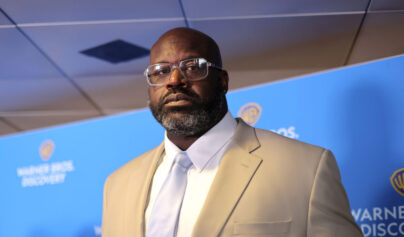In light of DJ Akademiks derogatory comments about hip-hop pioneers, rapper-turned-businessman LL Cool J sets the record straight, explaining the difference between creating a culture that has made other people rich and creating a business model to make you rich.
An audio grab of the millennial social influencer and sidekick to rapper Tekashia 6ix9ine, has been circulating around the internet with him asking the question, “Have you seen any of these old rappers who, like, they are the foundation of hip-hop, really living good?”

He further queries about how could the artists have contributed to the culture, one that is worth billions of dollars, when they are not rich and look “dusty.”
Many of the Gold Age rappers and stakeholders have spoken up, following the lead of one of the community’s most qualified and eloquent stakeholders, “Mr. Mama Said Knock You Out” himself, LL Cool J.
Far From ‘Dusty’
With a net worth between $120 and $130 million, LL Cool J is far from “dusty,” and is one of the few people in hip-hop, outside of Russell Simmons, who can boast of being in the industry for four decades and have amassed net worth over nine digits.
In fact, the only other rap act from the early ’80s that can come close to LL’s numbers are the Beastie Boys (both Ad-Rock and Mike D both are worth $90 million independently). Ironically, all four are connected to the Def Jam brand, considered the most successful house of rap music since 1984.
Since his debut as a 17-year-old, LL has put out 13 studio albums, two best hits compilations owns two record labels, is a music producer, and controls his own social networking site.
Beyond Music
In addition to music, the multi-hyphenate has 73 credits on both television and films, is a noted author, philanthropist, entrepreneur, a valued front man for brands, and an investor in businesses such as apparel, real estate, and beauty salons, like Gina Rivera’s Phenix Salon Suites.
His outstanding career, as a son of rap music’s pioneers, has afforded him the shoulders to stand tall, making it possible for him to be inducted into the Rock and Roll Hall of Fame in November of 2021 and the next month became the first hip-hop artist to win the Kennedy Center Honors.
As a son to those pioneers, the very ones that DJ Akademiks disrespected, in 2018, he started a company entirely dedicated to honoring them, using his own money and getting investors who saw the vision.
The Rock The Bells Venture
The month before he was inducted into the RRHF, he spoke at Goldman Sachs about the process of funding this dream, Rock The Bells. Named after one of his hit songs from his 1985 debut album “Radio,” Rock The Bells has committed since 2018 to giving fans a top-quality platform only dedicated to classic hip-hop.
Founded in 2018, investors in Rock The Bells include Irving Azoff, Mark Cuban, Egon Durban and Henry Louis Gates Jr.
The company is also a full content and commerce brand, but is best known for its radio channel of the same name on SiriusXM Channel 43 created and curated by LL Cool J.
“We did a little seed round. First, we put our money in a little seed and kind of got things rolling. Hired a few people,” LL shared.
Early on, he hired hosts like Grandmaster Caz and Sha-Rock, Roxanne Shante, Greg Nice (from Nice & Smooth), Bun B, DJ Mister Cee, DJ Chuck Chillout, Too Short, DJ Scratch and more.
He said with this innovative programming, he took the channel from 1.3 million listeners to 7 million listeners, all new consumers hungry to hear pioneers’ voices.
“Went from there and ended up doing a series A. And now we’re off to the races. And we’re helping brands — we’re winning on a lot of levels, right? We’re connecting brands with, you know, if you’re a brand and you want to touch that classic hip hop audience in a real way, you come to us.”
In 2021, his three-year-old Rock The Bells brand raised more than $8 million in Series A Funding to further invest in its direct-to-consumer business, and expand its content, commerce, and experiences spaces, the Hollywood Reporter revealed.
In an 2020 interview at Yahoo Finance All Markets Summit, the rapper stated it was a huge mistake to dismiss the early hip-hop generation and underestimate the value of stars from that era because there is money to be made with them.
“I think that Generation X has been completely ignored and written off. I mean, they’re a group that built hip-hop. They’re a generation that is rooted in the culture. They are a generation that really lives in and speaks it. They’ll pay for elevated experiences,” LL Cool J explained.
“I think that they are just a group that really loves and enjoys classic hip-hop. And no one has really saw the value in that,” he continued. “And they’ve just been asleep.”
He also understood he was in a place not just to make himself money, but to put the pioneers, like the ones Akademiks called “dusty,” in positions to access different revenue streams.
“You know, Rock the Bells is not just about LL Cool J and my knowledge of classic hip-hop. I’ve put people in positions who really understand the fundamentals of how to take this business from A to Z. And that’s what it’s about.”
Expanding the brand, LL introduced the Rock The Bells Festival in New York City this summer.
Responding to DJ Akademiks Dis
The Queens native, in his response to Akademiks, explains those fundamentals must be taken into consideration before anyone speaks on the financial well-being of the pioneers.
“It came to my attention that a DJ basically said that a lot of the pioneers in Hip-Hop are ‘dusty’ or how can they be the person that invented hip-hop, if they don’t have a lot of money or if they don’t represent like they have a lot of dough,” the almost 40-year rap music vet said.
He continued, “Let me explain something to you. Don’t confuse someone’s ability to develop a business model … Don’t think just because someone knows how to get money or fails to get money, that they didn’t make a contribution to the culture.”
“But let me say this to you. Today, you can come up with your five-year plan or ten-year plan … your twenty-year plan,” the two-time Grammy winner stated. “You can find a manager. You can find an accountant. You can find a team to take your career to the next level. When hip-hop first started, there were no managers. There were no accountants that believed in it. Record companies didn’t believe in it. Nobody believed in it.”
“How can you make a five-year or ten-year plan on something that didn’t even exist yet? That people have never even heard of?” he asked.
“They created an industry that we all ate off of,” he said in his over 10-minute tutorial. “They created an industry that you eat off of. When you go out there and monetize your brand … when you go out there to negotiate your deals … and guess what? That money, that bread, that food that you eating was created by those same people you disrespect.”




